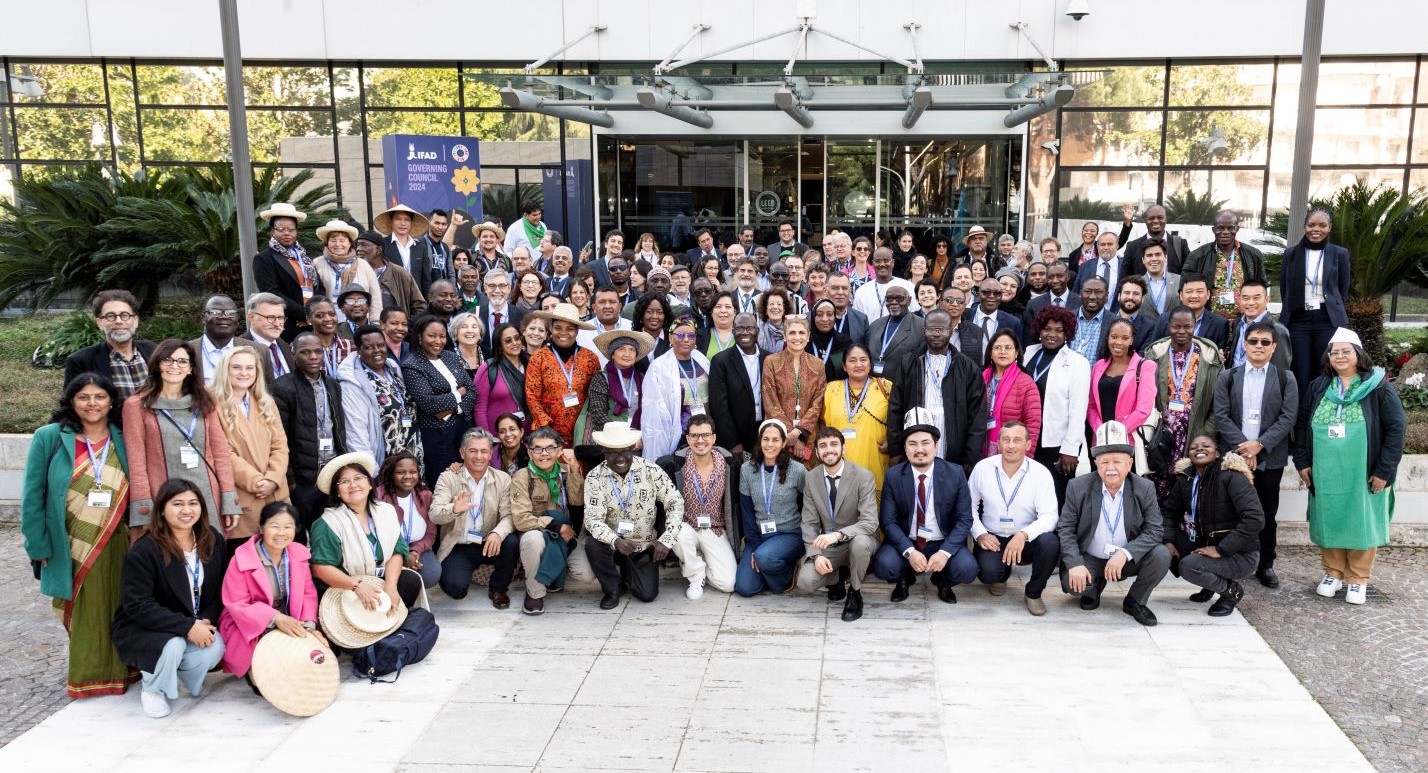




Eleven representatives from APFP-FO4A partner farmers’ organizations (FOs) and regional implementing agencies, namely Mr. Lila Raj Raut, a young farmer and secretariat staff of the Central Tea Cooperative Federation (CTFC) (Nepal), Mr. Aitkul Burkhanov, a forest user and leader from the Kyrgyz Association of Forest and Land Users (KAFLU) (Kyrgyz Republic), Ms. Khammone Luanglath, a woman farmer leader from the Lao Farmer Network (LFN), Mr. Phouttasinh Phimmachanh, secretary general of LFN, Mr. Toolos Bostonbaev, a young farmer and secretariat staff of the National Union of Water Users’ Associations (NUWUA) (Kyrgyz Republic), Ms. Megha Desai, program manager at the Self Employed Women’s Association (SEWA) (India), Ms. Esther Penunia, Secretary General of the Asian Farmers’ Association (AFA), Ms. Lany Rebagay, APFP-FO4A Program Manager and AFA Policy Advocacy Officer, Ms. Irish Dominado, AFA Knowledge Management and Communications Officer, Mr. Zainal Fuad of La Via Campesina, and Mr. Kyle Stice of the Pacific Islands Farmers’ Organisation Network (PIFON), participated in the Eight Global Meeting of the Farmers’ Forum (FAFO), which took place at the International Fund for Agricultural Development (IFAD) Headquarters in Rome, Italy on 12-13 February 2024. This year’s meeting convened over 80 farmers’ leaders collectively representing millions of small-scale farmers and rural producers from all over the world who work with IFAD and partner institutions. Additionally, 36 partner observers were present. The meeting focused on assessing achievements, identifying strengths and areas for enhancement, and exploring strategies to enhance co-ownership and participation.
On 12 February, Mr. Alvaro Lario, the President of IFAD, and Ms. Jyotsna Puri, the Strategy and Knowledge Department Associate Vice-President, opened the eighth global meeting of the FAFO, together with the members of the FAFO Global Steering Committee. IFAD presented its analysis of evolving partnerships with Farmers Organizations (FOs), from the Partnership in Progress Report 2020–2023 and the Approach Paper on IFAD–FO engagement. Two parallel working group sessions on strategic aspects of the partnership was held, and the outcomes emerged from the discussions was reported back in plenary. Ms. Penunia reported on the outcome of the discussions on IFAD-FO partnerships between the participants in the Asia-Pacific region. Mr. Bostonbaev also gave an intervention on behalf of FOs in Central Asia.
During the event, the key regional programs supporting FOs (FO4A, FO4LA, FO4ACP, GAFSP2) were presented, showcasing innovations, key results and lessons learned.
In addition, two thematic parallel discussions addressed the issues of climate change resilience and biodiversity conservation, and smallholders’ access to finance. In these sessions, Ms. Desai shared SEWA’s initiatives and activities on climate resiliency, while Ms. Rebagay discussed how and why direct Grant Financing to FOs works by sharing experiences from AFA’s implementation of MTCP1, MTCP2 and APFP-FO4A.















Three side events also took place in parallel – “Joining efforts in advancing peasant rights through UNDROP implementation”, “Strengthening capacities of farmers’ organizations to support sustainable food systems transformation and resilience” and “How can youth lead and be supported to sustainably produce the tomorrow’s food?”. These side events were co-organized by IFAD and FOs La Via Campesina, the Pan African Farmers’ Organization, and the Intercontinental Network of Organic Farmer Organization.
A Synthesis of Deliberations and Recommendations, prepared and agreed upon by the entire FAFO delegation, was presented during the FAFO closing session in front of Governors, Executive Board representatives, and IFAD’s Senior Management. During the closing session, Ms. Penunia conveyed the earnest plea and aspirations of farmers’ organizations, urging IFAD to allocate a more substantial fund to bolster their support. Remarks by the Vice-President of IFAD, Ms. Gérardine Mukeshimana, concluded the eighth global meeting of the FAFO. A statement from the FAFO’s Synthesis of Deliberations was also delivered by an FO representative to the delegates of the forty-seventh session of IFAD’s Governing Council on Wednesday, 14 February at IFAD headquarters.
APFP-FO4A co-implementer AFA and LVC also showcased various products of their partner FOs in a joint exhibition of the FO programs. The FO4A booth also engaged FAFO participants by conducting games that included a mini-quiz on the topic of agriculture.
Asked what is the significance of their attendance at the FAFO, Mr. Burkhanov says, “Firstly, I received a lot of information on the problems and solutions of farmers’ organizations from all over the world, made many friends and agreed to stay in touch and practically strengthen our relations. Secondly, I have seen that KAFLU and AFA are doing the right work on organic agriculture, agroecology, food security and farm welfare in the face of climate change, and I hope to continue in the same vein. Lastly, I discussed the successful implementation of the upcoming GAFSP project with senior officials of IFAD, GAFSP and AFA.”
“After the forum, we immediately noticed that we are not alone in our problems, and the entire agricultural world is slowly uniting, and such large organizations as IFAD listen to small farmer organizations like us. Many good contacts were made with other farming organizations from other parts of the world,” says Mr. Bostonbaev.
The Farmers’ Forum is a bottom-up dialogue on rural development and poverty reduction between farmers’ organizations, IFAD and governments. The Forum guides IFAD operations and identifies opportunities for partnerships.
Established in 2005, global meetings are held every four years, with regional meetings organized in between which inform the global meeting. The first cycle of regional meetings took place between 2017 and 2019 in Africa, Asia and the Pacific, and Latin America, while the second cycle took place between September 2022 and February 2023 and included the Near East, North Africa, Europe and Central Asia region.
For more information, read this article: https://www.ifad.org/en/web/latest/-/the-eighth-global-meeting-of-the-farmers-forum

Comments are closed